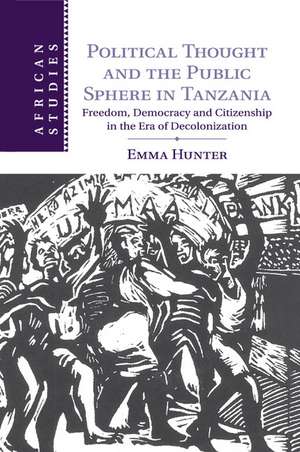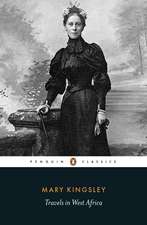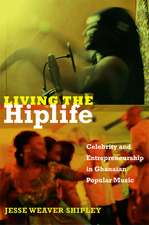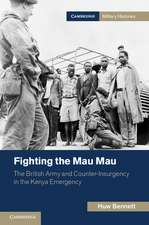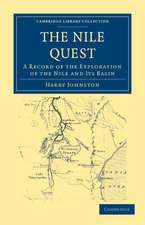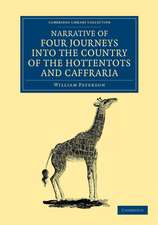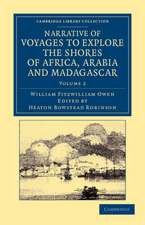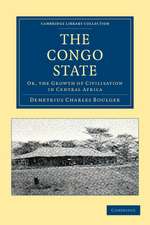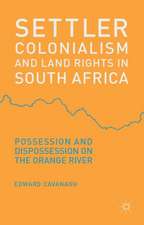Political Thought and the Public Sphere in Tanzania: Freedom, Democracy and Citizenship in the Era of Decolonization: African Studies, cartea 133
Autor Emma Hunteren Limba Engleză Paperback – 18 oct 2017
| Toate formatele și edițiile | Preț | Express |
|---|---|---|
| Paperback (1) | 286.30 lei 6-8 săpt. | |
| Cambridge University Press – 18 oct 2017 | 286.30 lei 6-8 săpt. | |
| Hardback (1) | 693.36 lei 6-8 săpt. | |
| Cambridge University Press – 26 apr 2015 | 693.36 lei 6-8 săpt. |
Din seria African Studies
-
 Preț: 177.35 lei
Preț: 177.35 lei - 9%
 Preț: 731.13 lei
Preț: 731.13 lei -
 Preț: 275.85 lei
Preț: 275.85 lei -
 Preț: 178.45 lei
Preț: 178.45 lei -
 Preț: 231.24 lei
Preț: 231.24 lei -
 Preț: 204.11 lei
Preț: 204.11 lei -
 Preț: 202.11 lei
Preț: 202.11 lei -
 Preț: 223.29 lei
Preț: 223.29 lei -
 Preț: 310.62 lei
Preț: 310.62 lei -
 Preț: 342.31 lei
Preț: 342.31 lei - 11%
 Preț: 696.80 lei
Preț: 696.80 lei -
 Preț: 184.93 lei
Preț: 184.93 lei -
 Preț: 238.11 lei
Preț: 238.11 lei -
 Preț: 177.35 lei
Preț: 177.35 lei -
 Preț: 208.25 lei
Preț: 208.25 lei -
 Preț: 299.45 lei
Preț: 299.45 lei - 23%
 Preț: 326.14 lei
Preț: 326.14 lei - 15%
 Preț: 459.92 lei
Preț: 459.92 lei - 15%
 Preț: 295.49 lei
Preț: 295.49 lei - 13%
 Preț: 296.11 lei
Preț: 296.11 lei - 18%
 Preț: 1007.12 lei
Preț: 1007.12 lei - 18%
 Preț: 1050.78 lei
Preț: 1050.78 lei -
 Preț: 446.37 lei
Preț: 446.37 lei - 12%
 Preț: 301.75 lei
Preț: 301.75 lei - 25%
 Preț: 770.26 lei
Preț: 770.26 lei -
 Preț: 110.05 lei
Preț: 110.05 lei - 18%
 Preț: 1106.02 lei
Preț: 1106.02 lei -
 Preț: 480.24 lei
Preț: 480.24 lei - 18%
 Preț: 1003.30 lei
Preț: 1003.30 lei - 18%
 Preț: 182.41 lei
Preț: 182.41 lei -
 Preț: 489.10 lei
Preț: 489.10 lei -
 Preț: 477.72 lei
Preț: 477.72 lei - 25%
 Preț: 853.03 lei
Preț: 853.03 lei - 18%
 Preț: 179.93 lei
Preț: 179.93 lei - 26%
 Preț: 762.16 lei
Preț: 762.16 lei - 18%
 Preț: 710.05 lei
Preț: 710.05 lei -
 Preț: 321.93 lei
Preț: 321.93 lei -
 Preț: 486.80 lei
Preț: 486.80 lei -
 Preț: 273.50 lei
Preț: 273.50 lei - 13%
 Preț: 311.00 lei
Preț: 311.00 lei - 18%
 Preț: 995.09 lei
Preț: 995.09 lei - 18%
 Preț: 703.45 lei
Preț: 703.45 lei -
 Preț: 322.12 lei
Preț: 322.12 lei -
 Preț: 287.48 lei
Preț: 287.48 lei -
 Preț: 286.69 lei
Preț: 286.69 lei
Preț: 286.30 lei
Nou
Puncte Express: 429
Preț estimativ în valută:
54.78€ • 57.20$ • 45.34£
54.78€ • 57.20$ • 45.34£
Carte tipărită la comandă
Livrare economică 05-19 aprilie
Preluare comenzi: 021 569.72.76
Specificații
ISBN-13: 9781107458628
ISBN-10: 1107458625
Pagini: 281
Ilustrații: 1 map
Dimensiuni: 153 x 230 x 18 mm
Greutate: 0.42 kg
Editura: Cambridge University Press
Colecția Cambridge University Press
Seria African Studies
Locul publicării:New York, United States
ISBN-10: 1107458625
Pagini: 281
Ilustrații: 1 map
Dimensiuni: 153 x 230 x 18 mm
Greutate: 0.42 kg
Editura: Cambridge University Press
Colecția Cambridge University Press
Seria African Studies
Locul publicării:New York, United States
Cuprins
Introduction; 1. Concepts of progress in mid-twentieth-century Tanzania; 2. Transnational languages of democracy after 1945; 3. Representation, imperial citizenship and the political subject in late colonial Tanganyika; 4. Patriotic citizenship and the case of the Kilimanjaro Chagga Citizens Union; 5. Freedom in translation; 6. Languages of democracy in Kilimanjaro and the fall of Marealle; 7. One party democracy: citizenship and political society in the post-colonial state; 8. Ujamaa and the Arusha Declaration; Conclusion.
Recenzii
'Analyzing a rich array of Swhaili-language newspapers and other sources, Emma Hunter brings out the multiple meanings that the people of colonial Tanganyika attached to concepts like freedom, progress, citizenship and representation. Examining debates over forms of belonging, claims to material and social resources and efforts to build local as well as national institutions, she shows that it was only in retrospect, and only partially, that Tanzanian elites reduced the demand for liberation to the assertion of national independence. She demonstrates the interplay of political discourse across localities and regional centers, in the colony as a whole, across the British empire and on an international scale.' Frederick Cooper, author of Africa since 1940: The Past of the Present
'In this exciting example of how to explore a new 'intellectual history from below', Emma Hunter has pioneered an understanding of how a new African nation, no matter how diverse in its ethnicity and religion, could develop a common political language of concern about how to pursue 'progress' while striving for social harmony. The editorial and letter pages of Tanzania's Swahili-language press in the era of decolonisation provide her with three decades of evidence. Julius Nyerere could construct a national language of debate derived less from the then international languages of freedom or socialism than from their local appropriations which addressed deeply vernacular anxieties about how to maintain justice and accountability in changing times. This is a model of how to pursue a new history of African social and political philosophy that owes nothing to the study of great texts.' John Lonsdale, Trinity College, Cambridge
'In this terrific book, Emma Hunter shows that Africans were not simply handed their independence by departing colonial powers. In the Swahili-language press Africans debated the most fundamental questions of democratic politics. They were not spokesmen for local, defensive, territorially bounded traditions. They were co-participants in the making of liberal political discourse. Hunter's book makes a powerful argument for the global salience of Africa's intellectual history.' Derek R. Peterson, University of Michigan
'This sophisticated book is surely at the vanguard of a new way of writing intellectual history. It builds a history of ideas 'from below' by working from Swahili language newspapers and other texts in circulation in Tanganyika and from archives in Tanzania and elsewhere … The way Hunter's focus moves between the microscopic conditions of localities far from any metropolis to the biggest questions of twentieth-century history, such as the theory and practice of democracy, is deeply admirable.' Judges, 2016 Gladstone Prize, Royal Historical Society
'Hunter mines a vibrant Tanzanian press, read alongside archival sources, to reveal the complex and diverse ways in which educated voices reworked old vocabularies and styled new ones to make sense of an era of political transition between 1945 and 1967. Her book uncovers a fascinating landscape of ideas in motion, suggesting important new conceptual avenues for future research on decolonization and democracy in Africa as well as modeling new methodological strategies for such analysis.' Priya Lal, African Studies Review
'Hunter's adeptness at moving between the specificity of such particular cases and the broad discussion of abstract ideas on a global scale is facilitated by her lucid writing and engagement with an impressively wide body of comparative scholarly literature. These features help make this book at once accessible to non-specialists and meaningful to Africanists.' Priya Lal, African Studies Review
'In this exciting example of how to explore a new 'intellectual history from below', Emma Hunter has pioneered an understanding of how a new African nation, no matter how diverse in its ethnicity and religion, could develop a common political language of concern about how to pursue 'progress' while striving for social harmony. The editorial and letter pages of Tanzania's Swahili-language press in the era of decolonisation provide her with three decades of evidence. Julius Nyerere could construct a national language of debate derived less from the then international languages of freedom or socialism than from their local appropriations which addressed deeply vernacular anxieties about how to maintain justice and accountability in changing times. This is a model of how to pursue a new history of African social and political philosophy that owes nothing to the study of great texts.' John Lonsdale, Trinity College, Cambridge
'In this terrific book, Emma Hunter shows that Africans were not simply handed their independence by departing colonial powers. In the Swahili-language press Africans debated the most fundamental questions of democratic politics. They were not spokesmen for local, defensive, territorially bounded traditions. They were co-participants in the making of liberal political discourse. Hunter's book makes a powerful argument for the global salience of Africa's intellectual history.' Derek R. Peterson, University of Michigan
'This sophisticated book is surely at the vanguard of a new way of writing intellectual history. It builds a history of ideas 'from below' by working from Swahili language newspapers and other texts in circulation in Tanganyika and from archives in Tanzania and elsewhere … The way Hunter's focus moves between the microscopic conditions of localities far from any metropolis to the biggest questions of twentieth-century history, such as the theory and practice of democracy, is deeply admirable.' Judges, 2016 Gladstone Prize, Royal Historical Society
'Hunter mines a vibrant Tanzanian press, read alongside archival sources, to reveal the complex and diverse ways in which educated voices reworked old vocabularies and styled new ones to make sense of an era of political transition between 1945 and 1967. Her book uncovers a fascinating landscape of ideas in motion, suggesting important new conceptual avenues for future research on decolonization and democracy in Africa as well as modeling new methodological strategies for such analysis.' Priya Lal, African Studies Review
'Hunter's adeptness at moving between the specificity of such particular cases and the broad discussion of abstract ideas on a global scale is facilitated by her lucid writing and engagement with an impressively wide body of comparative scholarly literature. These features help make this book at once accessible to non-specialists and meaningful to Africanists.' Priya Lal, African Studies Review
Notă biografică
Descriere
This book is a study of the interplay of vernacular and global languages of politics during Africa's decolonization.
